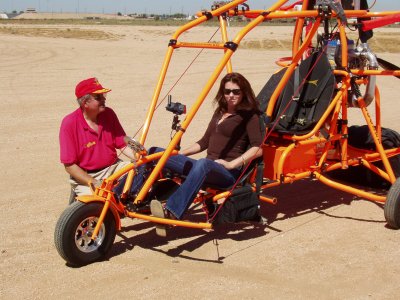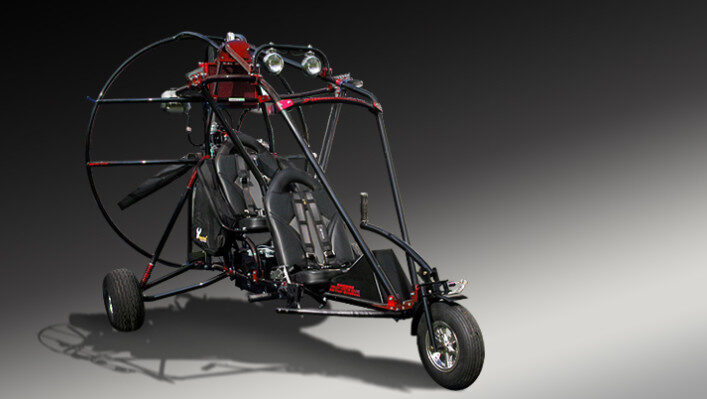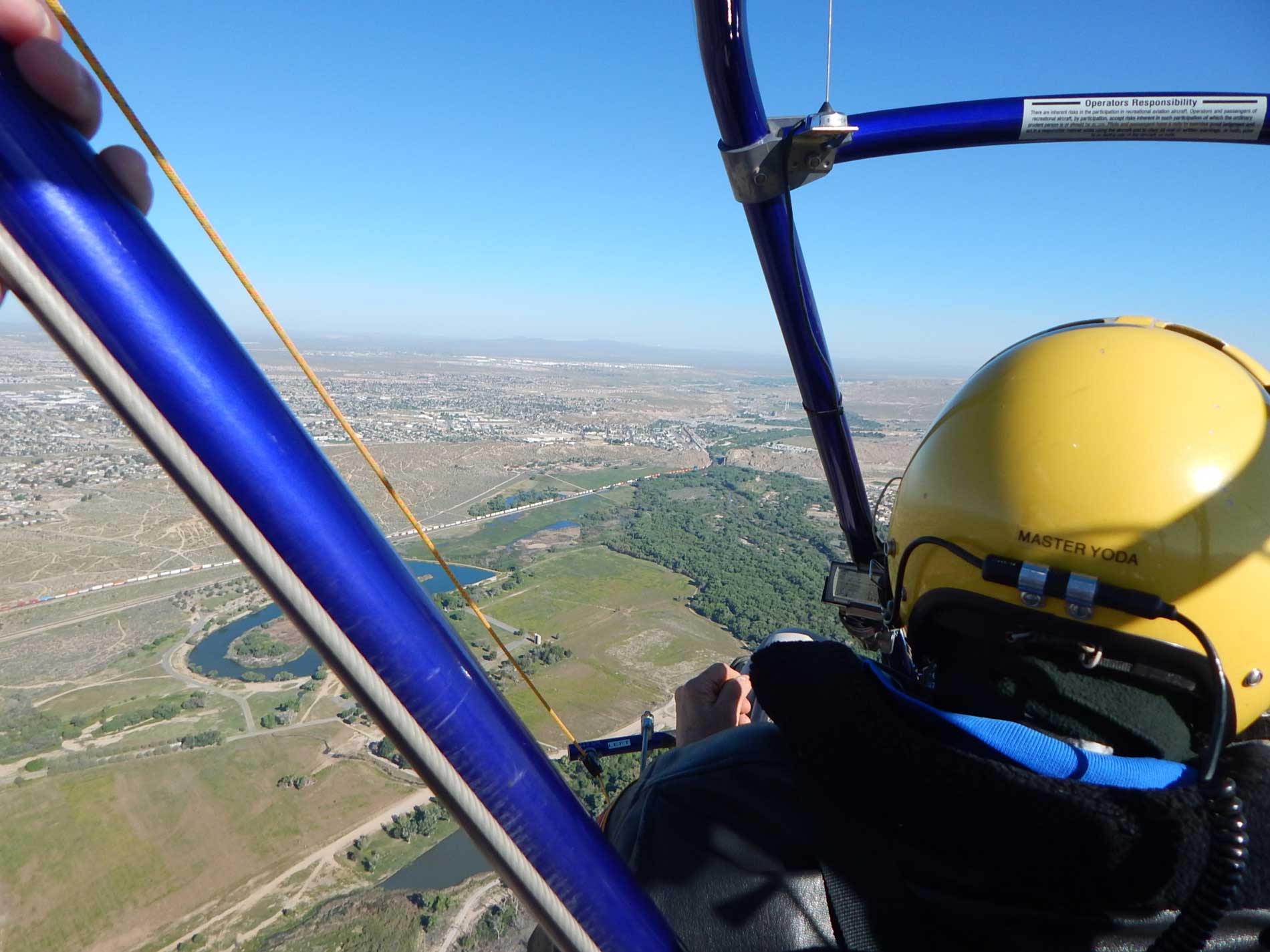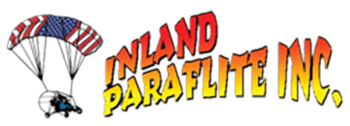Sport Pilot Powered Parachute Flight Training in California
We highly recommend that you go for a discovery flight prior to making any decision on powered parachute aircraft to purchase, and once you decide to purchase to start your training. This will make you a better informed buyer as to what you want in a Powered Parachute, whether it is a Light Sport powered parachute Aircraft or an Ultralight single seat powered parachute vehicle that meets the Part 103 rule requirements.

Discovery Flights
There are many ways to get started on your adventure of flying Powered Parachutes. The easiest way to find out if you will like this powered parachutes (most people are usually hooked on their first flight) is to sign up for a discovery flight. First you will receive the required FAA safety briefing, covering seat belt use, communications helmet, the positive exchange of the controls (so we both know who is flying the aircraft) and emergency procedures. (just in case.) You will then be taken aloft in our Powrachute Airwolf 2 place light sport powered parachute aircraft that is equipped with full dual controls with your CFI at the controls. Once we reach cruising altitude you will be able to take the controls if you desire and fly the Powrachute Airwolf powered parachute. You will see how it steers, learn how to climb, descend and make nice smooth turns as we fly off into the early morning sky of the high desert. When we return to the field, your CFI will demonstrate landing approaches by doing some touch and go landings, setting down and then powering up again and taking off. Finally all the fun comes to an end; (sadly) as we set up for a full stop landing that will have us back at our trailer.
First Flight Course Rate $500.00
Training on a pay as you go basis is $500.00 per day
Discovery Flights
15 minutes= $200.00,
30 minutes= $275.00
Longer flights available, call for flight time & costs, and for any special offers we may have.
Contact us for current training rates and packages
Contact us for scheduling or questions
Sport Pilot Powered Parachute Training
Sport Pilot Powered Parachute Training in 15 days. Powered Parachute Sport Pilot training can be accomplished in several ways. The best way is to sign up for our 15-day concentrated Sport Pilot Powered Parachute training program or Powered Parachute Boot Camp. This course is designed to take you from having no flight experience to earning your FAA Powered Parachute Sport Pilot license.
The course includes:
- Training materials & books
- Pilot log book
- Plotter
- Equipment
- Aircraft
- Fuel
- Ground School Training, 15 to 20 hours using PowerPoint
- Flight Training
- Issuance of Student Pilot Certificate
- All Required Tests and Their Costs
We also provide you an instructor on a one-to-one student/CFI ratio. Your instructor will be as dedicated to your success as you are.
The FAA is interested in making sure that anyone wanting to become any kind of pilot has three things.Those are:
- Flying knowledge.
- Flying experience.
- Proficiency in flying an aircraft.
We make sure that each of those critical areas are covered in the training process.
Aeronautical Flying Knowledge Ground School
At Inland Paraflite we provide you with a complete ground school that covers all the requirements you’ll need to know to pass the FAA written knowledge test and practical test with a thorough understanding of the material, and we focus on areas that the FAA wants you to know from the Federal Aviation Regulations part 61.311.
- Weather
- Radio protocol
- Airworthiness & LSA maintenance
- Basic aerodynamics
- Airport operations
- National Airspace System
- Preflight procedures
- Cross country navigation & use of aeronautical sectional charts for VFR navigation using pilotage, dead reckoning, and navigation systems as appropriate
- FAA publications & applicable regulations
- Flight physiology
- Aeronautical Decision Making & risk management
- Ground reference maneuvers (covering what you’re expected to do when actually performing these during flight training)
- Minimum safe altitudes & VFR minimums
- Responsibility of the Pilot In Command
- Effects of density altitude on takeoff and climb performance
- NTSB accident reporting requirements
- SP certificates, privileges & limitations
These are areas that many instructors have you read up on the material yourself, doing self study that may leave you not as confident in your knowledge of the material as you will be after completing our comprehensive ground school.
Aeronautical Flying Experience
Federal Aviation Regulations for the minimum requirements for Sport Pilot for Powered Parachutes:
- You must log at least 12 hours of flight time in a powered parachute, including 10 hours flight training (dual) and at least two hours solo flight training in the areas of operation listed in FAA Regulations, Part 61.313(g).
Including:
- One hour cross country dual flight training with a flight that is more than 15 nautical miles straight line from takeoff to landing locations.
- 20 takeoffs and landings to a full stop in a PPC
- 10 of those 20 take offs and landings must be solo to a full stop in a PPC
- One solo flight with a landing at a different airport and one segment of the flight consisting of a straight-line distance of at least 10 nautical miles between takeoff and landing locations.
- One hour of flight training on those areas of operation specified in part 61.311 preparing for the practical test within two calendar months before the date of the test.
While doing this flying we aren’t just flying the same time over & over again, we are preparing you and covering the critical information that you will need to know and be able to demonstrate during your practical test, more commonly referred to as the “check ride.” All of this comes straight from the Federal Aviation regulations part 61.311, and from the PTS. (Practical test Standards)
They are;
- Preflight preparation
- Preflight procedures
- Airport operations
- Takeoffs, landings, and go-arounds
- Performance maneuvers
- Ground reference maneuvers
- Navigation
- Emergency operations
- Post-flight procedures

Testing and License Issue
We all love taking tests, don’t we? Well, the FAA provides the information you will be tested on, they publish most of the questions used on the written knowledge test along with the answers, and they provide a standardized structure for the Practical Test/ Check Ride with the PTS. (Practical Test Standards) With the powered parachute flight training provided at Inland Paraflite you will be prepared for the testing and you find that you will be confident with the knowledge you have attained during your flight training with us, and you will reach your goal of earning your Sport Pilot Certificate for Powered parachute land.
Please feel free to Contact Us or call us directly at 760-242-3359 for current training rates, packages, scheduling or questions.

The Practical Test or Check Ride
You have completed your powered parachute training, your training CFI has recommended you for your Practical Test or as it is commonly referred to, the Check Ride. By this time you have gone over the PTS (Practical Test Standards) and have reviewed all the areas of operations covered in it as well as practiced all of the flying tasks you will be asked to do by the DPE. (Designated Pilot Examiner)
The Practical Test is divided into 2 parts.
- The oral exam: This is a one on one question and answer interview with an FAA DPE. This is designed so that you are able to demonstrate your knowledge of the material to your examiner. The questions will be in depth to test your knowledge and will require more than a yes or no answer. Remember though that you have the PTS. This is where all of the questions will come from, making this a standardized test, and while the actual questions that the examiner will ask are not in the PTS, the material that makes up those questions are. It is also an open book test so you are permitted to bring all of your books, notes & study materials and use them in answering the examiners questions. (Don’t you wish that your tests in school were open book?) You are not expected to memorize all of the material, (even DPE’s don’t do that) but you will need to be able to locate the information in your books as well as have a good working knowledge of the material.
- The Flight Test: This is the fun part, because you get to fly and that’s always fun. This is where you and the examiner are at the field. The exam starts upon arrival when the examiner will announce “The Test Has Begun.” This is where you will be asked to demonstrate your knowledge of all the flight tasks you have been training to perform, as outlined in the PTS, from Checklist Usage, Preflight of the aircraft being used for the test, any required briefings, including making sure the examiner is secured in the back seat with his seat belts & helmet secure (yes, you must treat the examiner as if it is his 1 st time up in a powered parachute & he does not know anything about being a passenger in a PPC), and then once ready, you take off. Once airborne the examiner will ask you to perform the tasks you have been diligently practicing. Once the flight test is complete, you’ll be waiting to hear the words “Congratulations, you’ve passed and are now a newly minted Sport Pilot”
If you’re doing a practical test for CFI privileges, the test is similar except;
- We will expect you to know the material to a higher and more precise level.
- We will expect your flight skills to be more refined.
- You will be asked to demonstrate your teaching skills by teaching the material covered to the SFIE who will be acting as a CFI applicant, both in the oral area and the flight portion.
You can expect a CFI practical test to take about twice as long as an initial Sport Pilot certification. Be sure to bring with you in addition to your study materials your pilot’s log book with all the required signatures on the flight time entries and the appropriate endorsements, your written knowledge test results with the testing center’s embossing on the page, not a photo copy, a valid drivers license, and your signed 8710-11 form with your CFI’s signature recommending you for the practical test. If you have any questions concerning the practical test please be sure to call us at 760-242-3359 so that you will show up with all you need and be prepared. Our goal is for you to be able to successfully complete the last step in the process. There is a complete check list in the PTS that spells out all that you should bring to the test with you. If you’re doing a proficiency check because you already have a pilot certificate for a different category/class and are just adding on Powered Parachute, the process is the same, except that the test is administered by a CFI, or a DPE acting as a CFI. (Don’t forget, all DPE’s are required to be CFI’s as well).
What if I am unable to devote 15 days straight to getting my powered parachute sport pilot license?
We offer the same powered parachute instruction as the concentrated course spread out to your scheduling needs. Please feel free to Contact Us or call us directly at 760-242-3359 for more information on this.
Inland Paraflite, Inc. can tailor a powered parachute flight training program to suit your needs as well as your budget.
Private Pilot adding Sport Pilot
We have a program for this also. The biggest question I get from already certificated pilots, from Private Cessna drivers, to ATP’s that fly 767’s & such is “How long will it take me to get this added on to my pilot certificate?” My answer, I don’t really know, it all depends on how fast you pick up on new skills. A powered parachute, while easy to fly, flies vastly different than any airplane.
Please feel free to Contact Us or call us directly
at 760-242-3359 for more information
We also offer:
Powered Parachute CFI Training
Flight Reviews
Part 103 Powered Parachute Ultralight Single Seat Training
Please feel free to Contact Us or call us directly at
760-242-3359 for information on any questions you may have.
